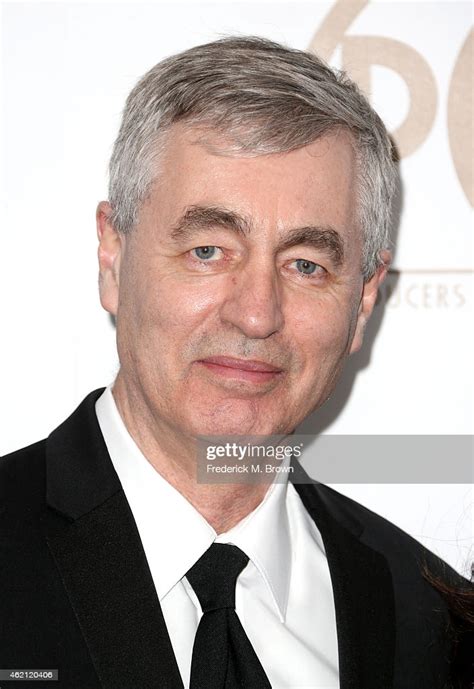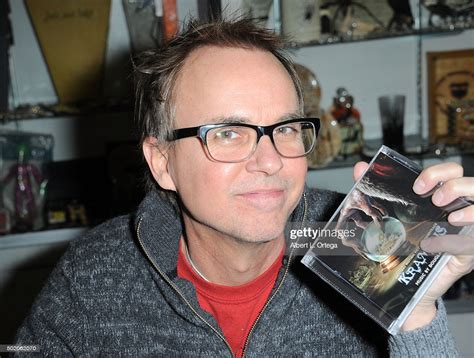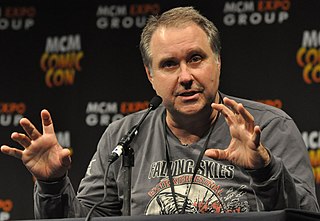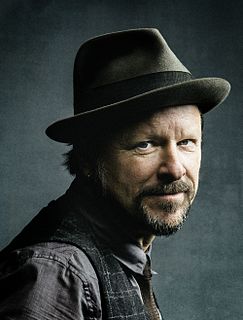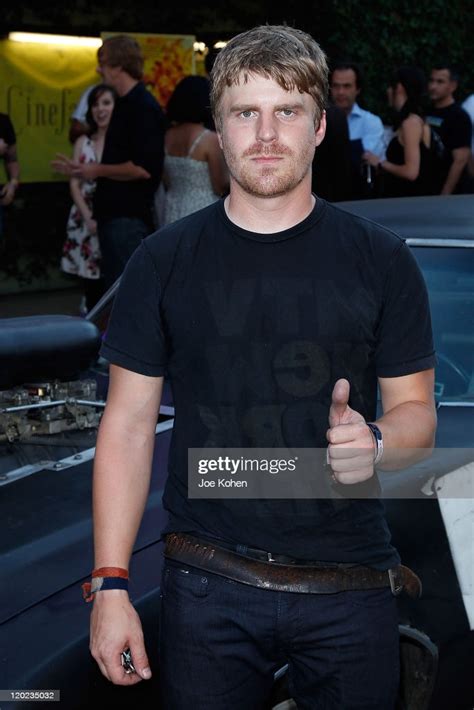A Quote by Steve James
For most of my films, I've had to go out and start shooting before I could get the rest of the funding. That was the case with 'Hoop Dreams,' 'Stevie' and 'The Interrupters:' We started them quietly out of Kartemquin Films, only really going to funders once we had something to show and a firm idea of what the film might be.
Related Quotes
I wish I could do a lot of things different. I'm not going to tell you what they are, but if I had a list of all my films right now, I'd go, 'Okay, I'll cross that one out and cross that one out and cross that one out and cross that one out.' Really. But I've made over 40 films. How can I not have some losers in there?
None of our films look alike, we are very dialectical in our approach to each one, and 'Hoop Dreams' was no exception. That's what I love about documentary filmmaking, we never know where the story is going, we don't know what is going to happen next, and we're inside a culture of people that you have to figure out in many ways. It's a relationship between what you thought might have been the story, and what happens in the 'field.' Out of that comes the story, which was exactly what happened with 'Hoop Dreams.'
I was playing in a band and was approached to score an independent film. I had never done it, but had written instrumental music, so I figured I could do it. Turns out I loved scoring the film, and took on another couple films before realizing that if I was to be an effective narrative composer, I should study the craft of composition. I stopped taking projects and got a degree in orchestral music composition, and followed that with film scoring studies. Near the end of my degree studies, I started taking on student films as a way to get back into film scoring.
Suddenly, I realized how tough trying to structure a story like this is. It was a lot of work. The one big advantage that we had was that we had eight scripts written before we started shooting, or even started casting. We had a really good opportunity to look at it and figure out where we were going to go and how to do it. Once we got a cast, which I love, then we started doing some revisions to make sure that they fit into it.
There's something that happens where you go, if you're lucky, goodness me, from film to another film to another film. And you can sort of feel that if you step off that treadmill, it might all go horribly wrong and you might never be employed again, you know. And I suddenly thought that that's not necessarily the case. And I also thought we make drama as actors about people in the world and that if you are on that treadmill, you start making films about other films.
In the case of my second film The Fish Child (El Niño Pez), I had written the novel about 5 years before I made into a film. In the case of The German Doctor I had published the novel a year before I started writing the script, I even had another project to shoot. But I had this idea of the powerful cinematic language from the novel that I couldn't let go of.
I was at a Madonna show many, many years ago and I was in the sweet spot and she came out and I mean it was the best part of the show. And I was shooting, shooting, shooting, shooting. And I'm like, "God, I must have shot a hundred pictures have I not run out of film?" And I opened the back of my camera and there was no film in there. So that happened to me only once.
You must know that Iran has a great number of productions. Many films are released. Most of them, like in the rest of the world, are commercial and shallow films. These are the most popular ones. And there are a few ones that actually develop more profound and thoughtful aspects of life. Only some of these films travel out of Iran.
When I started I had no knowledge of films whatsoever. I was an engineering major at Stanford. And I found out as a senior that they had two film critics on the Stanford Daily, and they got free passes to all the theaters in Palo Alto. So I thought, I'll do that, and I became a film critic. And then I became interested in films. But I had no time to study anything in that area because I was a senior, just finishing up as engineering.
I made so many films I thought were great and they turned out horrible, and I made films I did not believe in at all, and 'Shadow Of The Vampire' was one of these films I did not believe in during the shooting. And then when I saw it I was surprised what they had made out of it. They edited for quite a long time.
